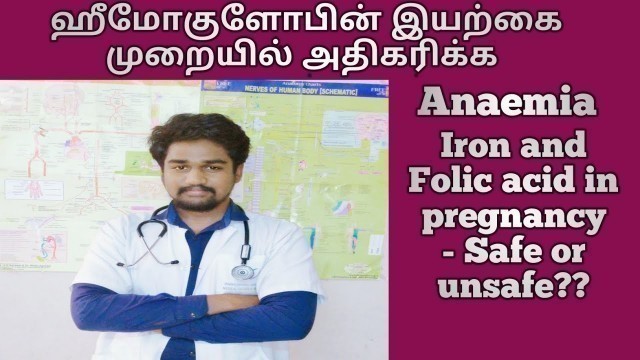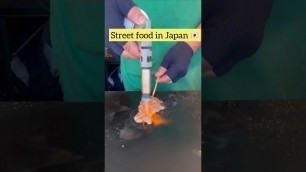

'#anaemia #pulwama #maruthuvam This video explains about anaemia and signs and symptoms of anaemia in tamil, It also explains Iron and folic acid tablets in pregnancy and it\'s side effects,also know how to treat anaemia naturally with foods For more queries and to learn more about medicine follow me at : Instagram : https://www.instagram.com/hussain_kalam_/ Facebook : https://www.facebook.com/maruthuvameigal/ Disclaimer: All the information mentioned in the videos are only for educational purposes and to create a basic awareness to common man on medicine and doesn\'t advocate any other consult or opinion.So consult your Doctor for any procedures and clear knowledge and don\'t rely only on the information given on this video. What Is Anemia? Anemia is a condition in which you don\'t have enough healthy red blood cells to carry adequate oxygen to the body\'s tissues. Having anemia may make you feel tired and weak. There are many forms of anemia, each with its own cause. Anemia can be temporary or long term, and it can range from mild to severe. See your doctor if you suspect you have anemia because it can be a warning sign of serious illness. Treatments for anemia range from taking supplements to undergoing medical procedures. You may be able to prevent some types of anemia by eating a healthy, varied diet. Symptoms Anemia signs and symptoms vary depending on the cause of your anemia. They may include: Fatigue Weakness Pale or yellowish skin Irregular heartbeats Shortness of breath Dizziness or lightheadedness Chest pain Cold hands and feet Headache At first anemia can be so mild that it goes unnoticed. But symptoms worsen as anemia worsens. A diet lacking in certain vitamins. Having a diet that is consistently low in iron, vitamin B-12 and folate increases your risk of anemia. Intestinal disorders. Having an intestinal disorder that affects the absorption of nutrients in your small intestine — such as Crohn\'s disease and celiac disease — puts you at risk of anemia. Menstruation. In general, women who haven\'t experienced menopause have a greater risk of iron deficiency anemia than do men and postmenopausal women. That\'s because menstruation causes the loss of red blood cells. Pregnancy. If you\'re pregnant and aren\'t taking a multivitamin with folic acid, you\'re at an increased risk of anemia. Chronic conditions. If you have cancer, kidney failure or another chronic condition, you may be at risk of anemia of chronic disease. These conditions can lead to a shortage of red blood cells. Slow, chronic blood loss from an ulcer or other source within your body can deplete your body\'s store of iron, leading to iron deficiency anemia. Family history. If your family has a history of an inherited anemia, such as sickle cell anemia, you also may be at increased risk of the condition. Other factors. A history of certain infections, blood diseases and autoimmune disorders, alcoholism, exposure to toxic chemicals, and the use of some medications can affect red blood cell production and lead to anemia. Age. People over age 65 are at increased risk of anemia. Complications Left untreated, anemia can cause many health problems, such as: Severe fatigue. When anemia is severe enough, you may be so tired that you can\'t complete everyday tasks. Pregnancy complications. Pregnant women with folate deficiency anemia may be more likely to experience complications, such as premature birth. Heart problems. Anemia can lead to a rapid or irregular heartbeat (arrhythmia). When you\'re anemic your heart must pump more blood to compensate for the lack of oxygen in the blood. This can lead to an enlarged heart or heart failure. Death. Some inherited anemias, such as sickle cell anemia, can be serious and lead to life-threatening complications. Losing a lot of blood quickly results in acute, severe anemia and can be fatal. Prevention Eat a vitamin-rich diet Many types of anemia can\'t be prevented. But iron deficiency anemia and vitamin deficiency anemias can be avoided by having a diet that includes a variety of vitamins and nutrients, including: Iron. Iron-rich foods include beef and other meats, beans, lentils, iron-fortified cereals, dark green leafy vegetables, and dried fruit. Folate. This nutrient, and its synthetic form folic acid, can be found in fruits and fruit juices, dark green leafy vegetables, green peas, kidney beans, peanuts, and enriched grain products, such as bread, cereal, pasta and rice. Vitamin B-12. Foods rich in vitamin B-12 include meat, dairy products, and fortified cereal and soy products. Vitamin C. Foods rich in vitamin C include citrus fruits and juices, peppers, broccoli, tomatoes, melons and strawberries. These items help increase iron absorption. credits: Mayoclinic Tags anaemia, anemia, anaemia signs and symptoms, anaemia natural treatment, Maruthuvameigal, Tamil, anaemia nattu maruthuvam, what is anaemia, symptoms of anaemia, anaemia in pregnancy, hemolytic anaemia, how to in'
Tags: Tamil , anemia , Anaemia , hemoglobin , hemoglobin increase food in tamil , how to improve hemoglobin , Haemoglobin , how to increase haemoglobin fast , ratha sokai , anaemia signs and symptoms , anaemia natural treatment , Maruthuvameigal , anaemia nattu maruthuvam , what is anaemia , symptoms of anaemia , anaemia in pregnancy , hemolytic anaemia , ratha sogai arikurigal , ratha sogai symptoms
See also:

















comments